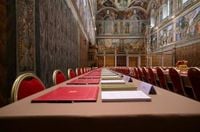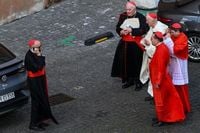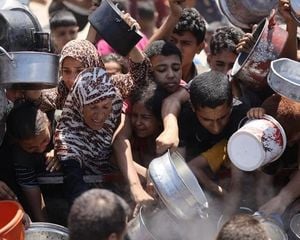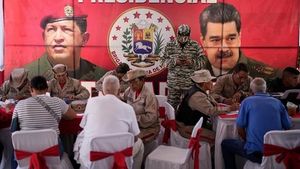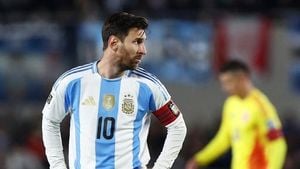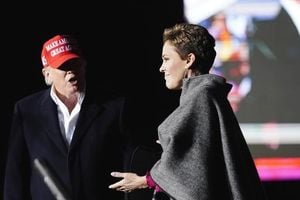The Vatican is set to begin the conclave on Wednesday, May 7, 2025, to elect a new pope following the death of Pope Francis. The event will commence with a Mass at 10:00 AM in St. Peter's Basilica, led by Cardinal Giovanni Battista Re, the Dean of the College of Cardinals, who is 91 years old. At 4:30 PM, the cardinals will process from the Pauline Chapel to the Sistine Chapel, where they will officially enter the conclave.
The Sistine Chapel has been the location for papal conclaves since 1492 and is renowned for its stunning frescoes by Michelangelo. During the conclave, the 135 participating cardinals, including four from Poland—Stanisław Ryłko, Kazimierz Nycz, Konrad Krajewski, and Grzegorz Ryś—will stay at the Domus Sanctae Marthae, a residence designated for the electors.
Cardinals who have not reached the age of 80 are eligible to vote, and during the conclave, they are strictly prohibited from any form of correspondence or electronic communication. This rule is in place to ensure confidentiality and the integrity of the voting process. The first vote will take place in the late afternoon of May 7, with only one vote scheduled for that day.
In subsequent days, the cardinals will vote four times a day—twice in the morning and twice in the evening—until a candidate receives a two-thirds majority, which requires 89 votes out of the 133 electors. If no pope is elected, black smoke will rise from the chimney of the Sistine Chapel, indicating a failed vote, while white smoke will signal the successful election of a new pope, accompanied by the ringing of bells.
Experts suggest that the conclave should not last long, typically taking up to five days. Recent history shows that no conclave in the last century has exceeded this timeframe. The conclave that elected Pope Francis lasted just two days and involved five votes, while Benedict XVI was elected on the second day in the fourth vote. John Paul II was chosen on the third day during the eighth vote.
The cardinals will vote by writing the name of their preferred candidate on a ballot, ensuring anonymity by disguising their handwriting. After each vote, the ballots are burned, and if no decision is reached, the smoke will be black. Should a pope be elected, the white smoke will rise for approximately six minutes, signaling the momentous occasion to the world.
Following the election, the oldest cardinal present will ask the newly elected pope if he accepts the role of Bishop of Rome. If he agrees, the cardinal will then inquire about the name he wishes to adopt as pope. The announcement of the new pope will be made from the balcony of St. Peter's Basilica, where the cardinal deacon will proclaim, "Habemus Papam!" (We have a pope), revealing the name of the new pontiff.
In preparation for the conclave, discussions have been ongoing among the cardinals regarding the future direction of the Church and potential candidates. Professor Tomasz Polak noted that while official alliances should not be formed, the realities of the situation may lead to informal agreements among the electors. The atmosphere leading up to the conclave is charged with anticipation, as the cardinals discuss pressing issues facing the Church.
The Mass for the election of the pope, known as Pro eligendo Romano Pontifice, will take place at 10:00 AM on May 7, 2025. This ceremony will include prayers for divine guidance for the electors as they prepare to make a significant decision affecting the Catholic Church.
As the cardinals gather for the conclave, they will also partake in a Mediterranean diet during their stay, with meals designed to be light and energizing. Alcohol will be limited, and meals will include traditional Italian fare, such as pasta, rice, and seasonal vegetables. Notably, they may sample the famous "pasta del conclave," a simple dish of butter and Parmesan cheese, historically served during lengthy conclaves.
In the days leading up to the conclave, the cardinals engaged in congregations and informal talks to discuss crucial matters concerning the Church. The last congregation held on May 6 focused on continuing the reforms initiated by Pope Francis, including addressing issues of abuse, economic transparency, and the need for a shepherd-like pope who embodies compassion and closeness to the people.
The conclave's proceedings are governed by the apostolic constitution Universi Dominici gregis, which outlines the procedures for electing a new pope, ensuring that the process remains both sacred and orderly. As the cardinals prepare for the significant task ahead, the world watches closely, waiting to see who will emerge as the new leader of the Catholic Church.
